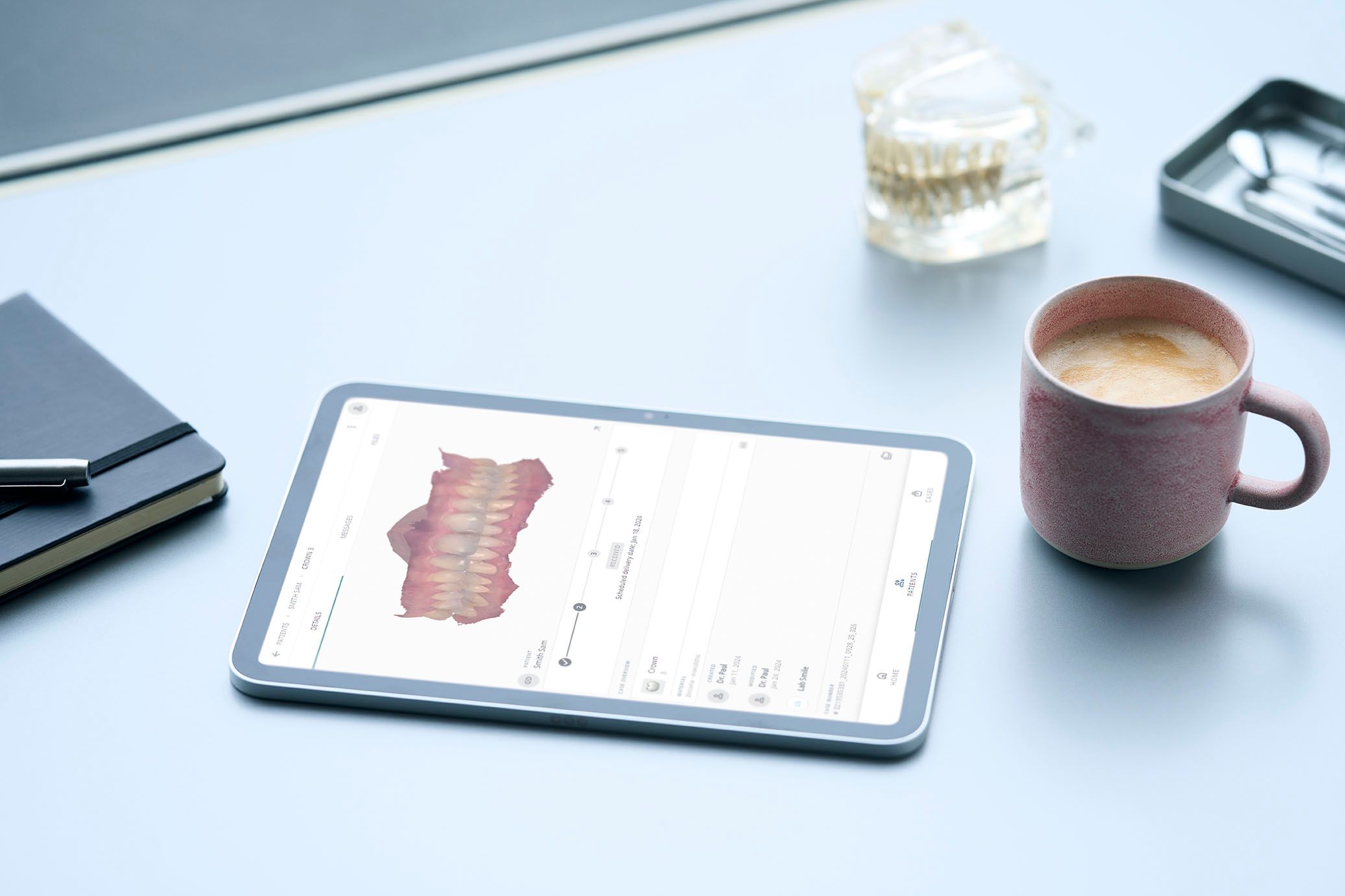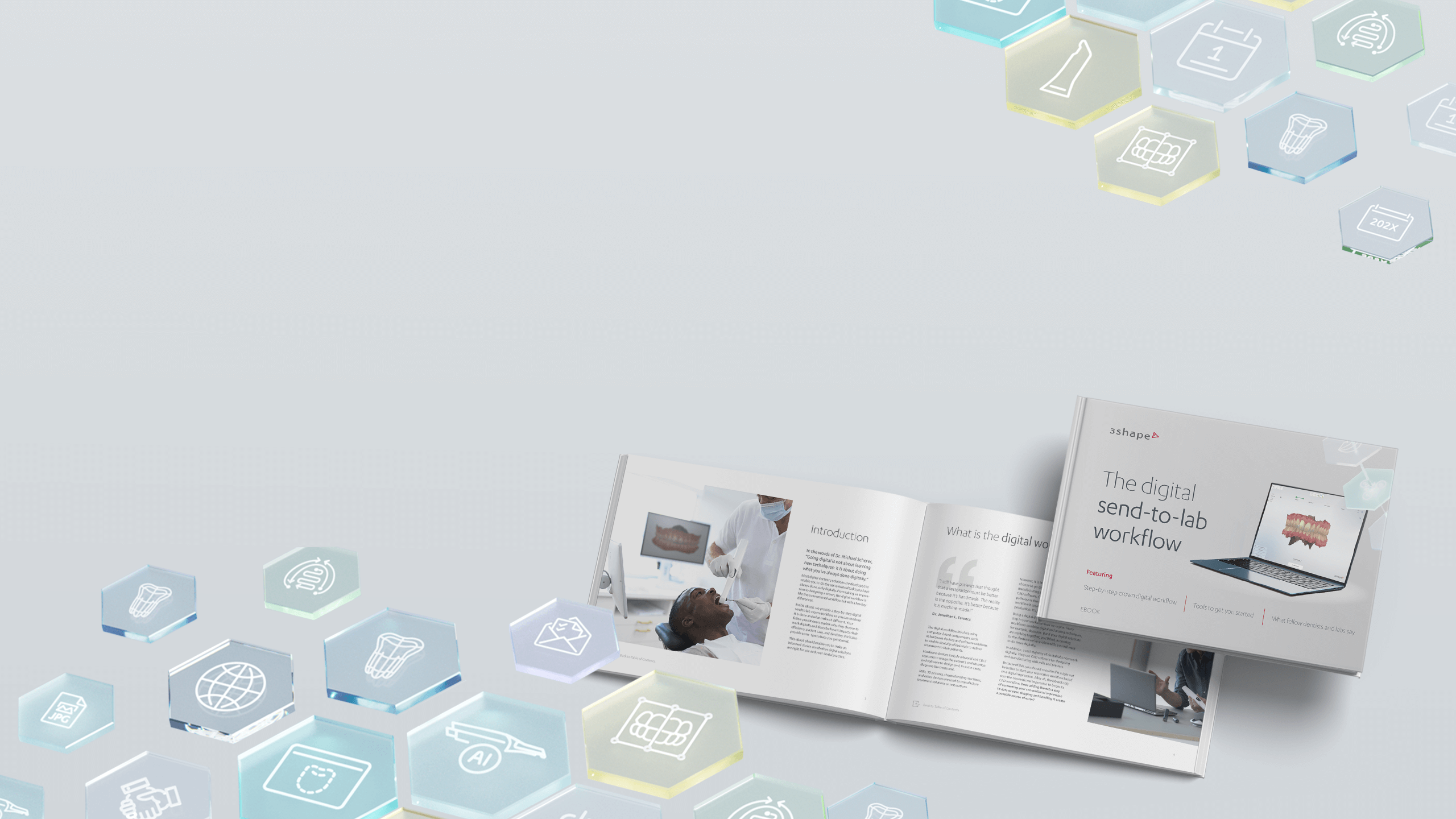- Home
- Blog
- Digital dentistry
- What all dentists need to know...
What all dentists need to know about cloud based dentistry
Whether you like it or not, your life is moving to the cloud — everything from your family photos to your bank accounts. The systems in your clinic are no different because the benefits are just too many to ignore.
But moving to the cloud is a leap of faith. You trust others to keep your data safe and available “up there”. And your patients, personnel and partners trust you to do the same.

Knowing it not only makes your business less exposed to risk — you will also make better long and short-term decisions around your technology. Not to mention that you’ll feel more in control in this rapidly evolving part of your life.
In my role as SVP of Products at 3Shape, I have worked alongside dentists from every walk of life and all over the world. I therefore know the impact the cloud will have on them and their clinics. I also know the concerns people have as this wave of cloud computing meets the traditional art of dentistry. And in this blog post, I will address some of those main concerns.
So if you’re not an expert in cloud software, read on and I will show you:
- Why your and your patient’s data is better off in the cloud
- How to be sure the data is as secure as possible in the cloud
But first:
What data, exactly, will be stored in the cloud?
The short answer is: All of it.
But more specifically, we’re talking about all information generated around intraoral scanning and information that’s in your PMS and other systems.
Scans, patient information, license information … if it’s not in the cloud today, it eventually will be.
The benefits of cloud-based dental software
As we have established above, there are just so many benefits to storing data in the cloud, that it’s the inevitable destination. And I’m now going to outline the most crucial ones, that apply to almost any system and situation.
Perhaps the cloud's biggest advantage is that you can access your data from any device at any location as long as you have internet access.

You can access data at any time from anywhere
Managing the life puzzle becomes easier when you can work remotely if necessary. Rather than being tied to your clinic, you can use your phone to resolve an issue from, for example, your home or summer house.
Here at 3Shape, we’re big on mobile devices. Say what you will about the phone playing a crucial role in our lives: we see it as key to making lives simpler for dentists. You likely reply to many emails on your phone, so why should your other work be any different?
Collaboration and communication become seamless
Related to the previous point: Imagine you have sent a case to the lab. Before they can proceed, they have a short, simple question for you—something that needs to be resolved before they can move along. They send the question in a chat message.
There is a night-and-day difference between being able to respond quickly on the phone and waiting until you are back in the clinic tomorrow or on Monday.
A lot of your clinic work goes as fast and smoothly as the information flows between you and your partners (such as labs and specialists), colleagues and patients. So with always-accessible, integrated systems in the cloud, you treat your patients faster, with more time to spare, without working harder.
It is your insurance against data disasters
You can’t spill water on the cloud, causing it to break (as you could a PC).
If all your data is stored on a local PC or server and it crashes or you suffer from a cyber attack, you can lose it all. Scans, x-rays, 10 years worth of patient history… suddenly gone with the wind.
But even though you can’t see it (which makes some people hesitate if they can trust it) the cloud is a far safer place for your crucial data. You can recover cloud data, usually in minutes.
You don’t need to be an IT expert
When you move to the cloud, to an extent you are removing the need for IT management in your clinic.
You will have no more local servers to manage, or local backups to do. Which means you spend less money on equipment, and less time constantly updating them.
You can easily integrate all cloud-based dental software
You can relatively easily integrate one piece of cloud-based software with another. This is normally done using existing APIs (or “Application Programming Interfaces).
As your dentistry work will only continue to “digitize”, you will rely on more and more different types of dental software. So being able to integrate them better and more easily is a massive advantage.
And related to that, there is also an added bonus: the more systems you integrate, the more value you get from each of them. You’re achieving a “network effect”. This is similar to, the more friends you have on a social media platform, the more valuable that platform becomes to all of you. It was no fun being the world’s first owner of a fax machine.

What you need to know about security in the cloud
So how secure is your data in the cloud?
As I mentioned earlier, your data is far more secure in the cloud than when stored locally. If your cloud software comes from an established technology provider, they will make sure all the latest security updates are implemented, and that you comply with regulatory standards.
Your local PCs are far less secure as they are vulnerable to cyber threats such as ransomware attacks and data breaches.
For example: If you have an on-premise PMS, your data may be reasonably secure as long as the information stays within the system. But you may be less secure than you think:
Think about your typical image of a patient.
- Is it stored locally on a folder on your PC?
- When you send it to a lab, do you email it?
- Do you use an external service like Dropbox?
As you move outside that protected system, you may become vulnerable, so maybe you are not as compliant as you thought you are. And we live in a time when regulatory demands on clinics are tightening fast. Not to mention how patients expect ever more data security.
Imagine what would happen to your patient’s trust in you if you were to start leaking sensitive patient data.
But when you use a serious vendor of cloud software:
- They will keep you compliant with the necessary regulations, be that HIPAA, GDPR or anything else.
- They work diligently to meet standards such as ISO.
- They regularly run penetration tests, and even hire outside, professional hackers to try to break into the systems, to identify any gaps.
No stone is left unturned.
Make sure your vendor is compliant
The security demands are high, as they should be since we’re talking about your patients’ data. So make sure you are also diligent when selecting the right vendor.
The major, global vendors are typically compliant. Some local ones aren’t. Many even fail the most basic requirement, such as storing your data in the region where your data legally must be stored (an important concept known as “data residency”).
Those that you can trust will likely address the above compliance factors in their marketing material, such as on their websites. But if you don’t see any of that information, make sure to ask them about it.

Let’s sum up
The benefits of storing data in the cloud are many and obvious. Especially if you have a small business where managing IT hardware and software aren’t your primary areas of expertise or interest.
Which is why, in the future, more or less all data will be in the cloud. So there is not really any value in waiting to “move to the cloud”. You may as well start benefiting from it today.
Besides the IT management and maintenance benefits, there is also the freedom to work from anywhere at any time, collaborate better and protect yourself from data disasters.
Your data is also more protected in the cloud and workflows are compliant with data regulations, so you don’t have to worry about the regulators breathing down your neck, or losing your patients’ trust in case of a data security incident. Just make sure you use reliable vendors that live and breathe data security every day—so you don’t have to.
- Home
- Blog
- Digital dentistry
- What all dentists need to know...
